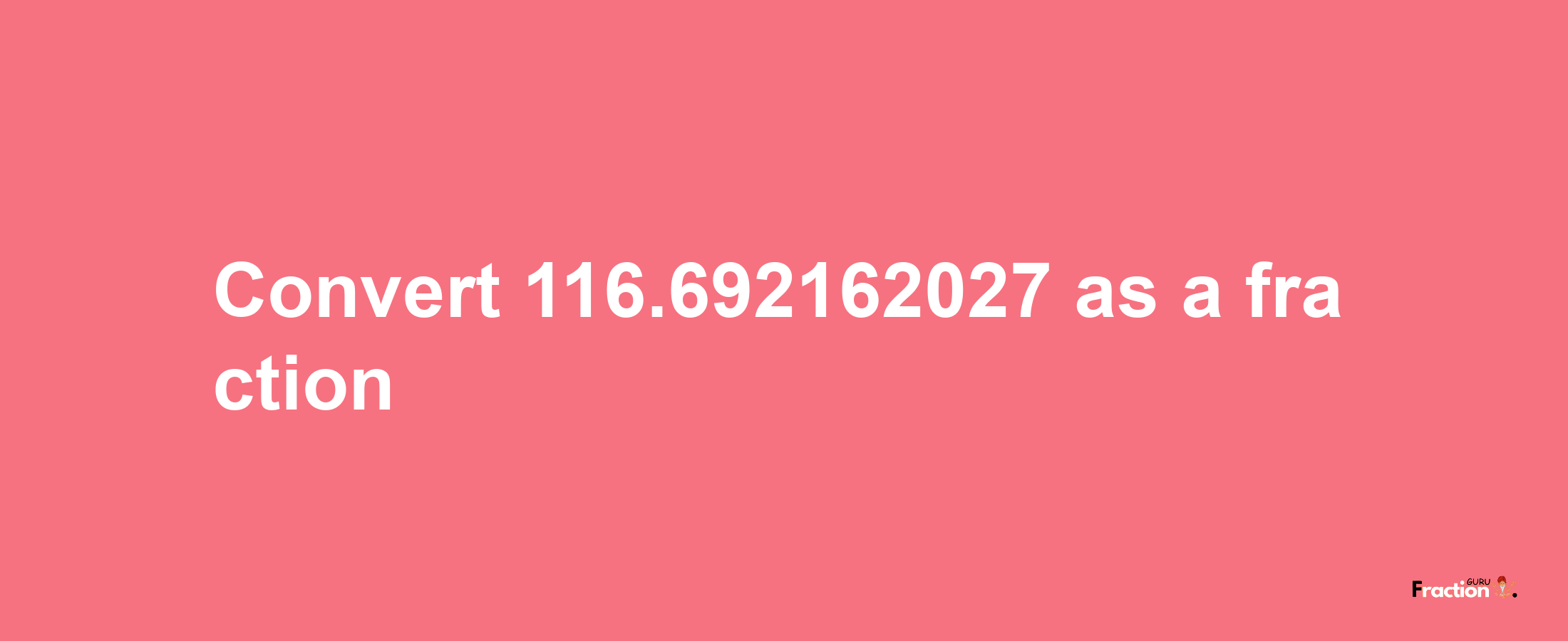Step 1:
The first step to converting 116.692162027 to a fraction is to re-write 116.692162027 in the form p/q where p and q are both positive integers. To start with, 116.692162027 can be written as simply 116.692162027/1 to technically be written as a fraction.
Step 2:
Next, we will count the number of fractional digits after the decimal point in 116.692162027, which in this case is 9. For however many digits after the decimal point there are, we will multiply the numerator and denominator of 116.692162027/1 each by 10 to the power of that many digits. So, in this case, we will multiply the numerator and denominator of 116.692162027/1 each by 1000000000:
Step 3:
Now the last step is to simplify the fraction (if possible) by finding similar factors and cancelling them out, which leads to the following answer for 116.692162027 as a fraction:
61030/523 / 1


